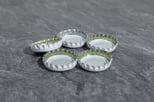Drinking alcohol is popular among many people. From daily use to only special occasions, from social to binging, they differ from moderate to unhealthy use. Binge drinking and drinking too much alcohol can raise the risks of developing alcohol use disorder (AUD). Conditions encompassed within an AUD diagnosis include those associated with alcohol addiction, alcohol abuse, and alcohol dependence.
Drinking frequency, amount, and speed all play a role in an individual's risk of developing alcohol use disorder. As with most substance use disorders, there are other risk factors, such as trauma, mental health conditions, or early exposure to drinking. Alcoholism in the family can also increase the risk of developing AUD.
When answering a question concerning the relationship between binge drinking and alcoholism, it helps to have some crucial terminology at your disposal. Many people, including professionals and laypeople, refer to people who drink heavily as "alcoholics." However, the word "alcoholic" has a tethered stigma because of decades of cultural baggage. Its pejorative overtone is the reason the scientific community is moving away from this terminology.
In today's health care environment, clinicians are increasingly using person-first language. By adopting the person-first approach, we hope it influences a better way for people to talk about and perceive alcohol use by saying "person with alcoholism or alcohol use disorder" instead of "alcoholic," as an example. This concept of person-first ideology considers people as complete, unique individuals, not just their condition.
Nearly 15 million American adults have alcohol use disorders. It may indicate that you have a problem with alcohol use if you drink more than you planned to or feel you cannot stop drinking.
It may not seem offensive to many people, but "alcoholism" represents an old-fashioned term the scientific community has tried to eliminate. Colloquially, it refers to alcohol use disorder, which has a more clinical acceptance. A person with AUD cannot stop or manage their drinking and have other health, occupational and social issues.
The term "unhealthy alcohol use" is popular in clinical settings and typically refers to harmful drinking by a person before escalating to the severity levels of AUD. According to the National Institute on Alcohol Abuse and Alcoholism, unhealthy alcohol use occurs when a man consumes 14 drinks per week or four drinks per occasion or when a woman has three drinks per occasion or consumes seven drinks per week.
Binge drinking is the act of consuming too much alcohol in a short amount of time. Drinking too much alcohol can cause serious consequences such as alcohol poisoning, injury, and dangerously violative behavior. Many people who engage in binge drinking, particularly young adults or students, may do so as a coping mechanism. Nevertheless, it is interestingly vital to keep in mind that binge drinkers are not always alcohol dependent, nor do they always fall into addiction.
The Centers for Disease Control and Prevention defines binge drinking as a woman having four or more drinks or a man consuming five or more within two hours, bringing their blood alcohol concentration to 0.08 g/dl.
A World Health Organization assessment, AUDIT, can help people understand if they are drinking too much. The Alcohol Use Disorder Identification Test has 10 questions, and testers can complete the questionnaire in as little as five minutes. For the assessment and next steps, visit https://auditscreen.org.
Countless Americans have issues with alcohol. Some people commit to sobriety, while others focus on moderation. Studies have shown that inpatient, outpatient, and aftercare treatments can successfully treat alcohol use disorder. If you feel your drinking has gotten out of hand, perhaps it is time you spoke with a clinician who will approach you and your condition and not you "as" your condition.








